
Radius produces polyethylene pipes ranging from 16 to 1,200 mm and fittings for use by utility companies for gas and water transfer.
Radius Systems’ plant in Derbyshire, U.K., houses 14 extrusion lines, each of which produces polyethylene pipes from 16 to 1,200 mm, together with an injection molding facility making associated fittings for use by utilities companies for gas and water transfer.
Eight lines are powered by dc motors, many of which are more than 20 years old. However, Line 12 had a high usage rate and yet the 182-kW dc motor was regularly failing, leading to an increase in downtime and rising maintenance costs. The company estimates that the annual static and dynamic checks, brush changes and outsourced labor costs alone are about £2,000 per motor.
Inverter Drive Systems (IDS) was asked to carry out before and after monitoring of the dc motor on Line 12. This determines the energy savings while confirming that an investment in an ac motor and drive would meet Radius Systems’ three-year capital payback policy.
“Monitoring of the application is critical to the success of any installation,” said Phil Nightingale, sales engineer, IDS. “It allows us to accurately determine the real energy saving potential, which means we can size the ac motor and drive correctly. We are often able to reduce the size of the motor and drive package required while exceeding the production targets.”
Through monitoring IDS determined the speed range of the line’s dc motor, which revealed it was oversized for the application—hence consuming more energy than necessary. Also, despite the motor having been regularly maintained, it was 20 years old and nowhere near the efficiency for which it was originally designed.
It was estimated that potential energy savings from an ABB synchronous reluctance motor and drive (SynRM) package for Line 12 would be in the range from 8 to 15%, with a return on investment within two years. In addition, an excess of £2,000 cost avoidance is estimated with the removal of dc motor maintenance.
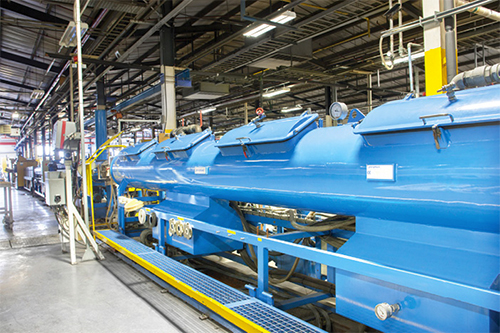
Established in 1969, Radius Systems is the only provider to offer solutions spanning the entire pipe life cycle.
“To pick an exact production run that can give an accurate energy measurement is very difficult to quantify, hence the range from 8 to 15%,” said Rob Betts, engineering manager at Radius Systems. “The actual energy saving is dependent on several process variables, such as raw material type, different product ranges and profiles, the temperature at the die, and the barrel and the general ambient environmental conditions. For instance, energy consumption is higher on a cold day as more energy is needed to warm up the process.”
The SynRM is a 200-kW, 1,500-rpm, IE4 solution and together with the ABB industrial drive, ACS880, it offers a much higher efficiency than standard ac induction motors and drives. It is also a far quieter package than the existing dc motor.
“SynRM has given us a reduction in noise in the production hall which is a benefit we had not expected,” said Betts. “While we have not measured the noise levels, everyone has noticed a definite reduction across the plant, which in itself is a motivational measure.”
A challenge was presented by the physical footprint of the existing dc motor. “Dc motors tend to be long and thin,” said Betts, “whereas ac motors tend to be shorter but bigger in diameter.”
However, SynRM can be up to two frame sizes smaller than a conventional induction motor which is a benefit in the direct replacements of dc motors.
While SynRM is well tested on quadratic torque applications, like pumps, fans and compressors, there are fewer constant torque references—such as extruders. Despite the shortage of constant torque references Betts was confident in the solution.
“Would we consider a SynRM package again? Most definitely; IE4 and higher efficiencies are the way forward, so provided the price is competitive, the return on investment can be justified and the technology can be delivered to our time frames, then we would have no qualms about using SynRM,” he said. “We have some 300 motors on-site, of which about 20% are variable-speed. Following the success of this installation and the support that we get from IDS, we have decided to standardize exclusively on ABB drives across the plant.”
ABB
www.abb.com
Filed Under: Green engineering • renewable energy • sustainability, MOTION CONTROL, Motors • dc

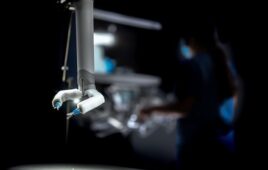
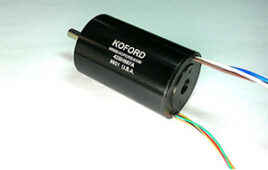
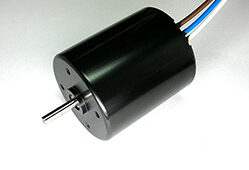
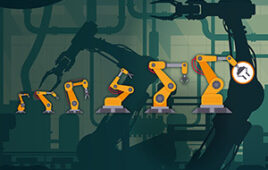
Tell Us What You Think!